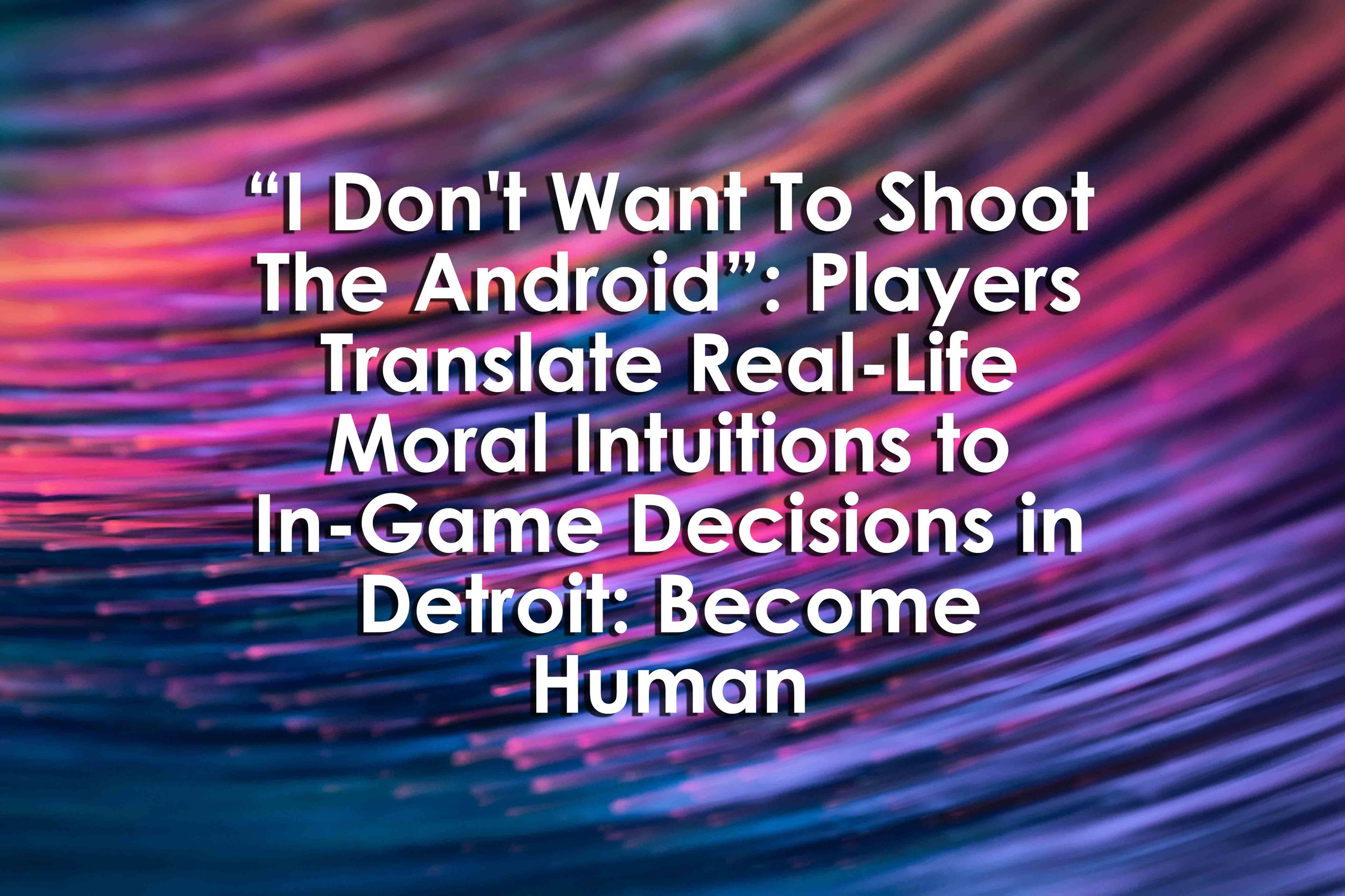“I Don't Want To Shoot The Android”: Players Translate Real-Life Moral Intuitions to In-Game Decisions in Detroit: Become Human
“I Don't Want To Shoot The Android”: Players Translate Real-Life Moral Intuitions to In-Game Decisions in Detroit: Become Human
“I Don't Want To Shoot The Android”: Players Translate Real-Life Moral Intuitions to In-Game Decisions in Detroit: Become Human
By Karina Arrambide, Cayley MacArthur, Katja Rogers, Alessandra Luz, and Lennart E. Nacke
Abstract
“In interactive story games, players make decisions that advance and modify the unfolding story. In many cases, these decisions have a moral component. Examining decision-making in these games illuminates whether players mobilize their real-life morality to make in-game decisions and what impact this has in both the game world and real life. Using mixed-methods consisting of semi-structured interviews and the Moral Foundations Questionnaire (MFQ30), we collected data from 19 participants who played the game Detroit: Become Human. We analyzed how participants applied their real-life morals toward in-game decisions using thematic analysis and statistical analysis of the MFQ30 results. Qualitative findings indicate that participants mobilize their moral intuitions to make in-game decisions and how much participants cared about their game characters influenced their choices. We contribute a better understanding of how players react to moral dilemmas in interactive story games for game designers to help them improve player experience.”
Reference
Arrambide, K., Yoon, J., MacArthur, C., Rogers, K., Luz, A., & Nacke, L. E. (2022). “I don’t want to shoot the Android”: Players translate real-life moral intuitions to in-game decisions in Detroit: Become human. CHI Conference on Human Factors in Computing Systems. doi:10.1145/3491102.3502019 https://dl.acm.org/doi/fullHtml/10.1145/3491102.3502019
Keywords
Interactive narrative, morality, decision-making, choice, interactive story, games, thematic analysis, moral foundations theory, moral foundations questionnaire, research

